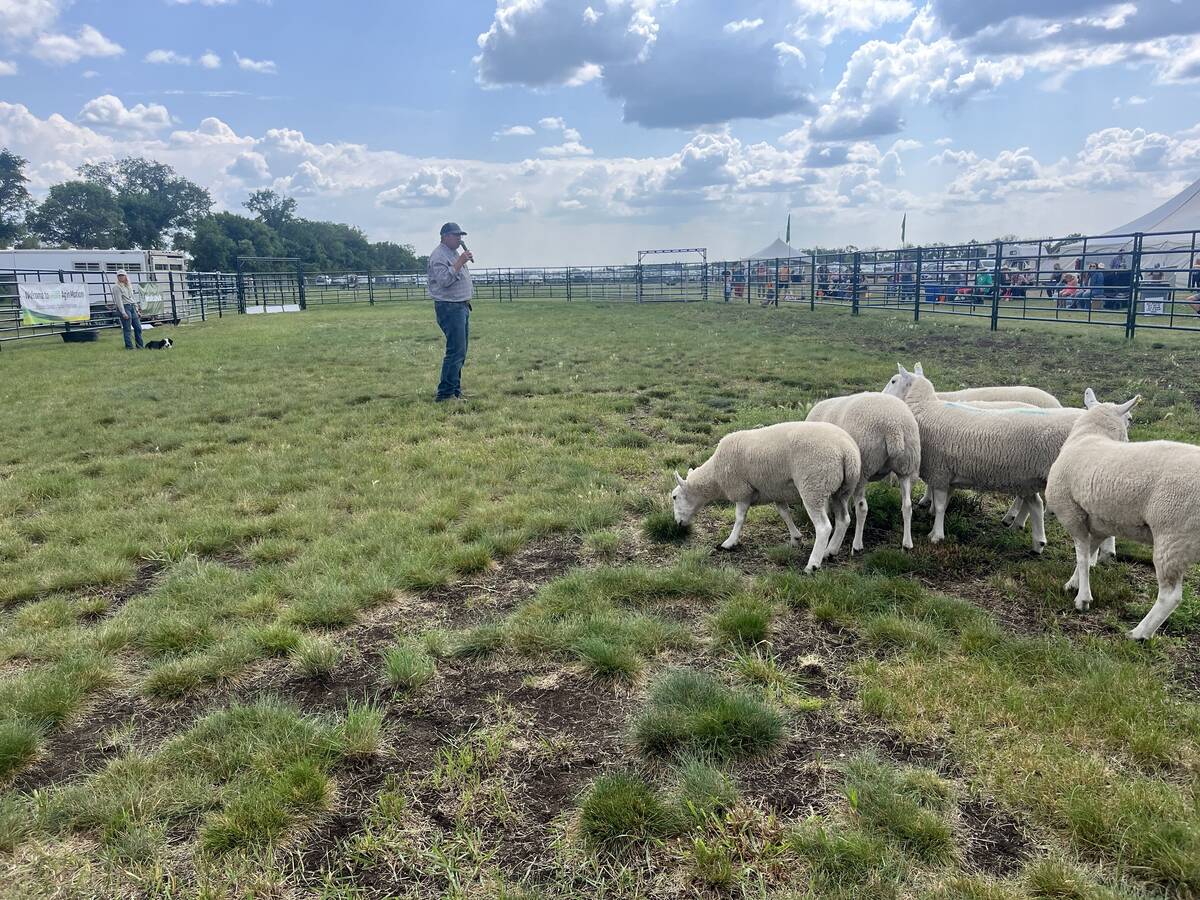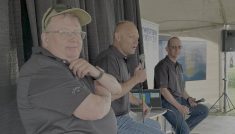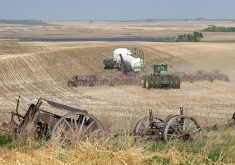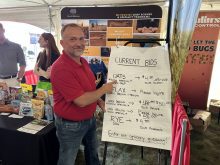A long-awaited beef competitiveness study will soon be made public, said the general manager of Alberta Beef Producers.
Industry leaders are working with the provincial government to finalize the study’s recommendations, said Brad Dubeau during an interview Feb. 27. They will be released sometime after March 3 or 4.
Agriculture and Irrigation Minister Nate Horner told Alberta Beef Industry Conference delegates about the situation facing beef producers. “We’re seeing producers leave across North America for different reasons.”
Read Also

Stock dogs show off herding skills at Ag in Motion
Stock dogs draw a crowd at Ag in Motion. Border collies and other herding breeds are well known for the work they do on the farm.
However, there are also reasons for optimism, he said.
“With the mother cow herd the smallest it’s been since 1962 in the U.S., there are bright days ahead for this future, I really believe that, for this industry.”
Beef producers hope the study will show where profitability can be improved, said ABP chair Melanie Wowk during an interview last July. She expected at the time that prices during the following few months could determine whether some producers, particularly older people, will continue raising cattle in an industry that is aging.
The increasing cost of beef calves and sheep prompted the Alberta government to add $50 million last year to a provincial program that helps younger producers obtain financing to buy livestock. The Feeder Association Loan Guarantee Program was boosted to $150 million for beef and sheep producers, up from $100 million.
“Moving forward, my department is also exploring options on individual loan limits and the number of contracts that can be taken out,” Horner told the conference.
Although he revealed few details about the study’s conclusions, he said it validates concerns about specified risk materials “and the differences in the way they’re treated here, and other countries have negligible risk status, so that’s something I’m sure we’ll have conversations about going forward.”
Such materials include the skulls, brains and spinal cords of cattle slaughtered in Canada under federal rules to prevent tissues that may contain BSE from entering the human food chain. China imposed a ban on Canadian beef imports following a case of atypical BSE in a central Alberta cow after the Canadian Food Inspection Agency reported it in late 2021.
Horner said beef is Alberta’s largest agri-food export, totaling about $3.5 billion in 2021.
“It’s still early for the 2022 numbers, but it’s looking to be another record year for agri-food exports and much of that success comes from the strength of our beef sector.”
Premier Danielle Smith told the conference her government is ready to help.
“That doesn’t mean the road ahead will be smooth, there is plenty of competition from other countries, and there is no shortage of critics eager to attack and shame those who produce beef and those who eat it.”
Smith pointed to a federal proposal last year to place fat content warning labels on ground beef and pork. Although Health Canada backed down due to opposition, Alberta needs to be prepared to fight future challenges, she said.
Former British Columbia premier Christy Clark and ex-Alberta senator Doug Black joined former Saskatchewan Premier Brad Wall in a panel discussion at the conference about the future of Western Canada. Clark was not optimistic about the economy due to high debt and a lack of new resource-based projects.
“And if we don’t start building more pipelines, if we don’t start drilling for more gas, particularly in (British Columbia) if we don’t start digging more mines, and figuring out how to make sure that the trees can be cut down… we’re not going to have an economy, and regulation and tax and government intervention is just killing all that opportunity that Canada has always depended on that comes out of and off the ground.”
Black took aim at federal initiatives such as the proposed “just transition” legislation to help oil and gas workers move to green energy jobs, and caps on oil and gas emissions.
“As the premiers have pointed out, Ottawa has forgotten who funds all of these programs and projects, which are apparently so desirable for us….”
Clark said nearly everything being done to fight climate change is going “absolutely the wrong direction. I think we’ve got to have a different way to do it, but unfortunately, I think the British Columbia, Ontario, and Quebec governments are supporting the federal government in doing that the wrong way.”
There are few remedies available to provincial governments when the federal government strays into their jurisdiction, she said.
“This is the most overreaching federal government we have ever had in our history, and so I do see the Alberta Sovereignty Act and the Saskatchewan First Act in that context.”
Contact doug.ferguson@producer.com


















